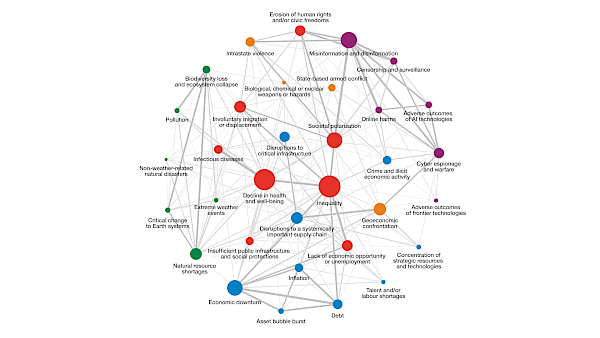Episode transcript The transcript is generated automatically by Podscribe, Sonix, Otter and other electronic transcription services.
Hi everyone, here is Ricardo Vargas and this is the 5 Minutes Podcast. This week I want to talk about the World Economic Forum Global Risk Report 2025. Every year I try to read this and make a summary on my podcast because this is what is shaping the discussions in Davos that will start this week. And I want to share with you the top risks for 2025, what changed from previous years and why does this matter for us project managers. So the main risks in 2025, the three top ones state based armed conflict. So conflicts like Ukraine, Middle East, Sudan, these can become really global conflicts if not managed very well. A proxy wars, terrorism, political instability, these are increasing uncertainty and humanitarian challenges. The second is extreme weather events like the event that is happening in LA. This type of event is becoming more frequent and more severe due to climate change impacting infrastructure, supply chain and populations all over the world. So flooding, wildfires, hurricanes and these will require from us a different approach in the projects we do and also will give more relevance to projects that will support sustainability and resilience just because of obvious reasons. And the third one is misinformation and disinformation is this proliferation of fake news and misleading content. And this has a big help of AI, especially generative AI, and can disrupt trust, polarized society and complicate decision making process. And what changed from previous years? So Geoeconomic confrontation has risen. So tensions around trade, resource competition, investments have elevated this risk very high. The second countries are increasingly turning into unilateral policies, challenging global collaboration, challenging challenging mechanisms like the United Nations, the World Trade Organization, World Health Organization. So these institutions will face massive challenges due to this economic confrontation, including the World Economic Forum. The second is economic risks have declined because if we see previous years, there was almost the top of everything was the economical risks because of inflation and this. So it seems that this risk and these concerns were less relevant. Of course they remain underlining issues, but they are not the top ones. And the third technological risk this for obvious reasons. So adverse outcomes from AI, cyber warfare, biotech risks misuse of gene editing are the third most relevant risks for this year, and what these impacts on Project Management? First increased focus on risk mitigation. So we will focus a lot on risk mitigation, and we need to stop thinking that risks are only our internal risks that are, I would say, close to our hands to act on. We will have to become much more adaptable. The second is stakeholder alignment. Because of misinformation and polarization, these stakeholder engagements will become more and more complex because you may see, for example, vendors that do not want to supply services or products to a specific country or to a specific type of organization just because of misinformation, fake news, and this. So we need to need to invest in a clear, transparent communication to navigate on this. This will be a very big thing for this year. The third one shift towards sustainability and resilience. I believe that projects that will help sustainability aspects and resilience will take a lot of relevance. And again, now, sustainability is not just a fancy word. We can't see the lack of sustainability practice making real damage like what we see we saw in LA and what we are seeing absolutely in every corner of the planet. Okay, the fourth one is adaptive strategies. As I said 100 times, adapt to our ability to adapt is becoming clear and agility in project management, the use of agile, the use of hybrid methods. Any method that could respond quickly becomes super, super important, mostly to respond, not the changes that, for example, the political changes in your organization, but the changes in geopolitical and technological landscape. So how do you respond quick and fast to, for example, AI developments and also geopolitical? Because maybe, for example, President Trump or on on taking the office could could impact, could put tariffs and this that could shift completely the priorities of your project in terms of how do you get resources, how do you get your workforce. So you need to adapt and be prepared for that. And last but not least, leveraging technology. I'm talking about this for the past two years with AI and this. This is the year for us to leverage technology. We need to understand that technology is here. We need to see that technology will make a very big leap this year, will impact in the positive and not so positive. Cybersecurity will become very critical for organizations, very critical when we combine generative AI with large language models with this type of technology. So these are the five key things you need to keep in mind this year based on the risk report. Risk mitigation, stakeholder alignment, shift towards sustainability practice, adoption of adaptive strategies and leveraging technology effectively. You can read this report on the World Economic Forum website. It's a free report. It's 104 pages. I know it's it's big, but just read the summary, and take a look at it, because probably your project will be more impacted by these external events than even your internal events or things that are happening inside your organization. Stay tuned to that and get ready for the year. I hope you enjoy this podcast and see you next week with another 5 Minutes Podcast.

